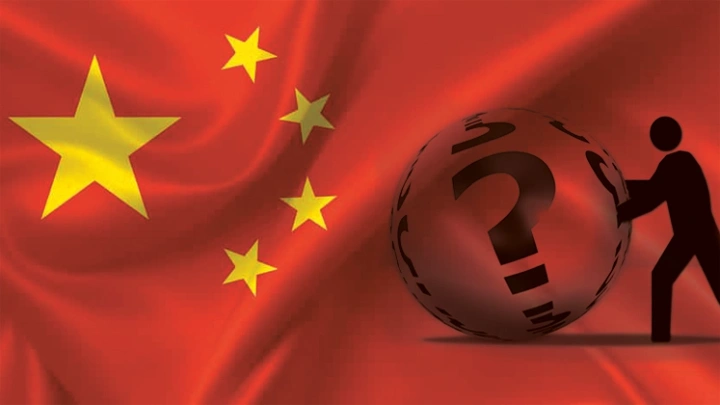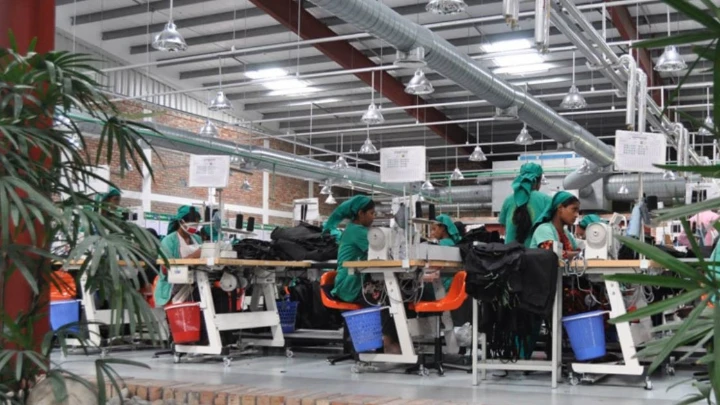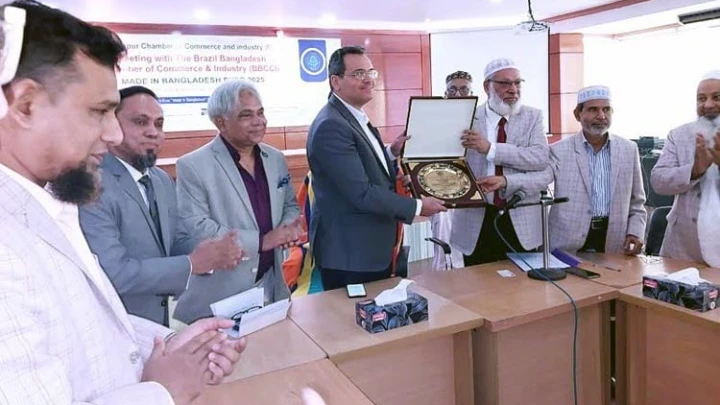Unfortunately, Bangladesh has not yet adopted Japan's China Plus One policy.
DailyStar || Shining BD
Japan's "China Plus One" policy, first announced in 2008, prioritizes the transfer of Japan's "sunset industries" from China to other countries.
With the rising cost of production due to China's severe shortage of skilled laborers, the initiative's primary goal was to lessen the country's reliance on that country. In addition, Japan sought to reduce its reliance on a single sourcing location out of concern for the potential for market instability.
Since the early 1980s, the majority of Japan's foreign investments have been focused on China, making this shift necessary.
According to the Japan External Trade Organization (Jetro), which aims to promote bilateral trade and investment between Japan and the rest of the world, 33,050 Japanese companies have begun relocating to various countries in Asia and elsewhere, investing a total of more than $57 billion in the process.
Vietnam, Cambodia, Myanmar, and Thailand were the primary Asian recipient nations. Attractive to investors were their efforts toward inclusive and sustainable development, as well as their focus on attracting foreign direct investment and incorporating their economies into global value chains.
Bangladesh has not benefited from the Japanese policy despite having had 15 years to do so.
Though investment of Japanese firms in Bangladesh now stands at $380 million, it is 0.1 per cent of what they invested in Asia, according to Jetro
"No Japanese company shifted manufacturing plants to Bangladesh from China under the China plus one strategy," said Yuji Ando, chief country representative of the Jetro.
However, Japanese companies have set up operations in Bangladesh on their own. Their numbers rose from 245 in 2015 to 338 at present.
Though their investment now stands at more than $380 million, it is just 0.1 per cent of what Japanese companies have invested in Asia, according to the Jetro.
Hope lies in the fact that the government has established a dedicated Japanese Economic Zone at Araihazar in Narayanganj. The zone, owned jointly by the Bangladesh Economic Zones Authority, the Japan International Cooperation Agency, and Sumitomo Corporation, opened last year.
According to businesses, officials and economists, the Japanese sunset industries are not relocating from China to Bangladesh mainly because of the investment climate not being up to the mark yet for poor reforms and the delays in business processes for red tape.
Ando said infrastructure, port facilities, logistic support and efficiency of service providers were not of the standard required by Japanese investors.
He hopes all bottlenecks standing in the way of attracting foreign investments will be removed within the next five to 10 years.
According to him, Japanese investors want to ensure quality investments, so they first and foremost take into consideration policies, incentives, investment environment and cooperation from service providers, all of which are important in running a business.
Lauding the government's initiatives, Ando said the time has come for Bangladesh to be serious in creating a welcoming atmosphere for FDI right from its main international airport.
On addressing red tape, the Jetro official said the government could think about ways to empower institutions to promote transparency and accountability in governance and business.
"No investor has relocated from China to Bangladesh since the outbreak of the coronavirus pandemic," confirmed Tareq Rafi Bhuiyan Jun, a former secretary general of the Japan-Bangladesh Chamber of Commerce and Industry.
"There are Japanese companies interested in investing in the infrastructure sector of Bangladesh and the government is taking very positive steps to attract foreign investment and improve necessary infrastructure," he said.
"But it will take time to reach the standards of countries like Vietnam, Indonesia and Thailand."
Red-tape still prevails among various service providers which impedes efforts to attract FDI, said Kazi Aminul Islam, a former executive chairman of the Bangladesh Investment Development Authority (Bida).
He identified skills gaps in all fields and weaknesses in the logistics sector for the lack of adequate interest in making investments in Bangladesh.
"These should be addressed and policies updated as per need to improve on the ease of doing business."
Abul Kasem Khan, a former chairperson of the Business Initiative Leading Development, a think-tank, suggested improving the ease of doing business continuously to reduce hassles and the cost of doing business to attract FDI.
Though Bangladesh has made improvements in the ease of doing business over the past decade, it is still lagging behind other countries which are improving continuously, he said.
Khan stressed the need for adopting effective strategies with timeframes to remove all hassles to fulfil the expectations over FDI.
"Now the macroeconomic situation is unstable, which investors take into consideration while making investments. Investors are following a wait-and-see strategy," said M Masrur Reaz, chairman of the Policy Exchange of Bangladesh.
"We are yet to reach a stage where infrastructure and necessary policy support resemble those of competing countries."
"We have just started to improve the business climate whereas competing countries had started off much earlier and have already prepared themselves as investment destinations."
Lokman Hossain Miah, executive chairman of the Bida, said they were working with different organisations to bring improvements alongside necessary reforms to attract FDI.
He acknowledged that state-run service entities need a lot of orientation on proper processes and should change as per the demand of investors in order to create a business-friendly environment so that investors see Bangladesh as the top choice for investments.
However, investors always think of ways to protect their capital and for this reason, they are yet to flock to Bangladesh, he said.
"I think the situation will improve day by day and this will help attract FDI, not only from Japan but also from around the world."
Although no Japanese factory has yet shifted to Bangladesh from China under the policy, Miah believes investors would come once the global economic situation improves.
"For this reason, the investment environment should be improved further," he noted.
Shining BD























